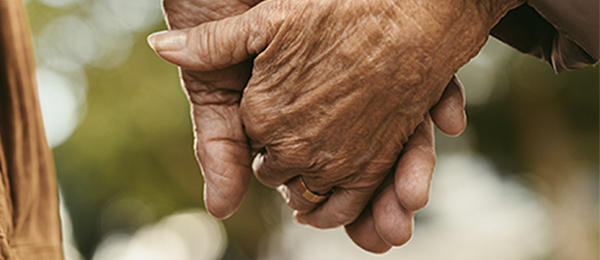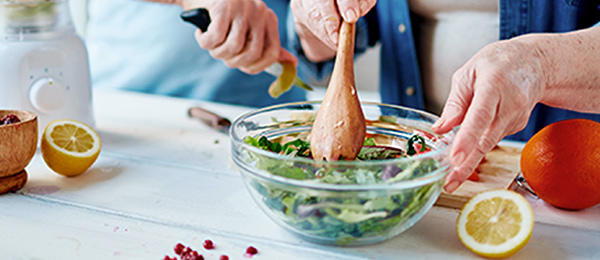Coping with dialysis
Speaking openly about your condition can be a challenge, but it may help you establish trust and gain the emotional and practical support you need to cope and live well with your condition.

Talking about your condition can ease the difficulty of adjusting to life with chronic kidney disease (CKD) and help you cope with dialysis.
Starting conversations with the people you love about the new realities you are facing may be challenging, but worth the effort. Their help and support will be invaluable throughout your treatment journey and sharing with them early and often will ensure that you have every opportunity to discuss their thoughts, concerns, needs and expectations.

Talking to your spouse, partner or significant other
If you have a spouse, partner, or significant other, you may prefer that they are your main source of emotional support throughout your treatment journey. This is especially the case if they are your main carer or support system during your dialysis treatment. It is important that you discuss with him or her how your treatments may affect daily life for both of you and make a plan for how to cope with shifting roles and expectations in your household.

Talking to your family/whānau/aiga
At some point in your treatment journey, you may want to let your family/whānau/aiga know about your condition. Being open about your condition with those closest to you may help them understand what you are going through.
Your family can also be a strong support network. For example, they may be able to take you to and from treatments. If you are on PD or home haemodialysis, they may support you by helping you with your treatment. Otherwise, they may be willing to help you fulfil personal or family duties, like household errands or caring for children.

Talking to your friends
Your social activities might be affected depending on your treatment choice. But this does not mean an end to your social life as you know it.
Communicate to your friends that you can still participate in the activities you loved before your diagnosis – although you should double-check this with your nurse or doctor – and that it is important to you that they continue to include you, when possible. They will likely be open to exploring some new activities that you can do together. If you choose to do in-centre haemodialysis, you may even make some new friends during therapy.

Talking to your employer and co-workers
You may still be able to work while managing your kidney disease. And it might be important that you do so for your physical, mental and financial health. If you need to adjust your work schedule to align with your treatments, it may be beneficial to be open and honest with your workplace about your condition.

Going solo on your CKD treatment journey
If your preference is to embark on your treatment journey without confiding in friends and family, know that you can go to your healthcare team for advice and resources that will help make managing your condition easier. They should be able to advise you on how to get the most out of your treatment and how to balance dialysis with your professional and personal responsibilities or direct you to someone who can. Maintaining an open dialogue with your healthcare team about your condition is a great way to take advantage of the helpful support network they can provide.
My Kidney Journey Newsletter
Sign up now to receive exclusive content on kidney disease, treatment options, lifestyle tips and inspiring patient stories.
How to live well with dialysis?

Mental health and kidney disease
Sharing your emotions is essential to preserve your mental and physical health while living with dialysis. Learn more about mental health and kidney disease.

Sexuality and dialysis
It is possible for you to maintain intimate relationships while you’re on dialysis. Learn more about sexuality and dialysis.

Diet for dialysis patients
A kidney-friendly diet can go a long way in helping you feel and do your best throughout your treatment journey. Learn more about your diet and dialysis.
